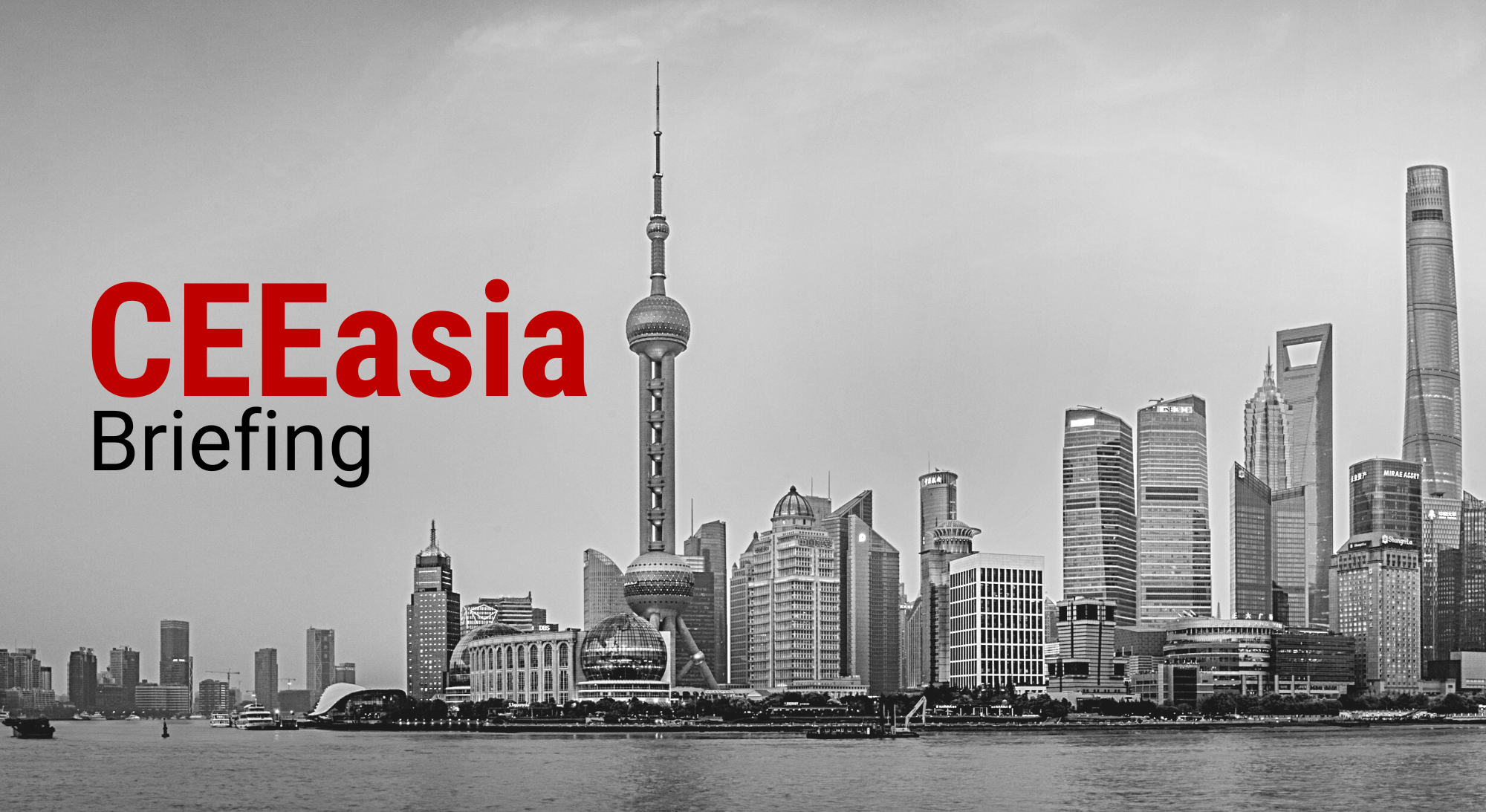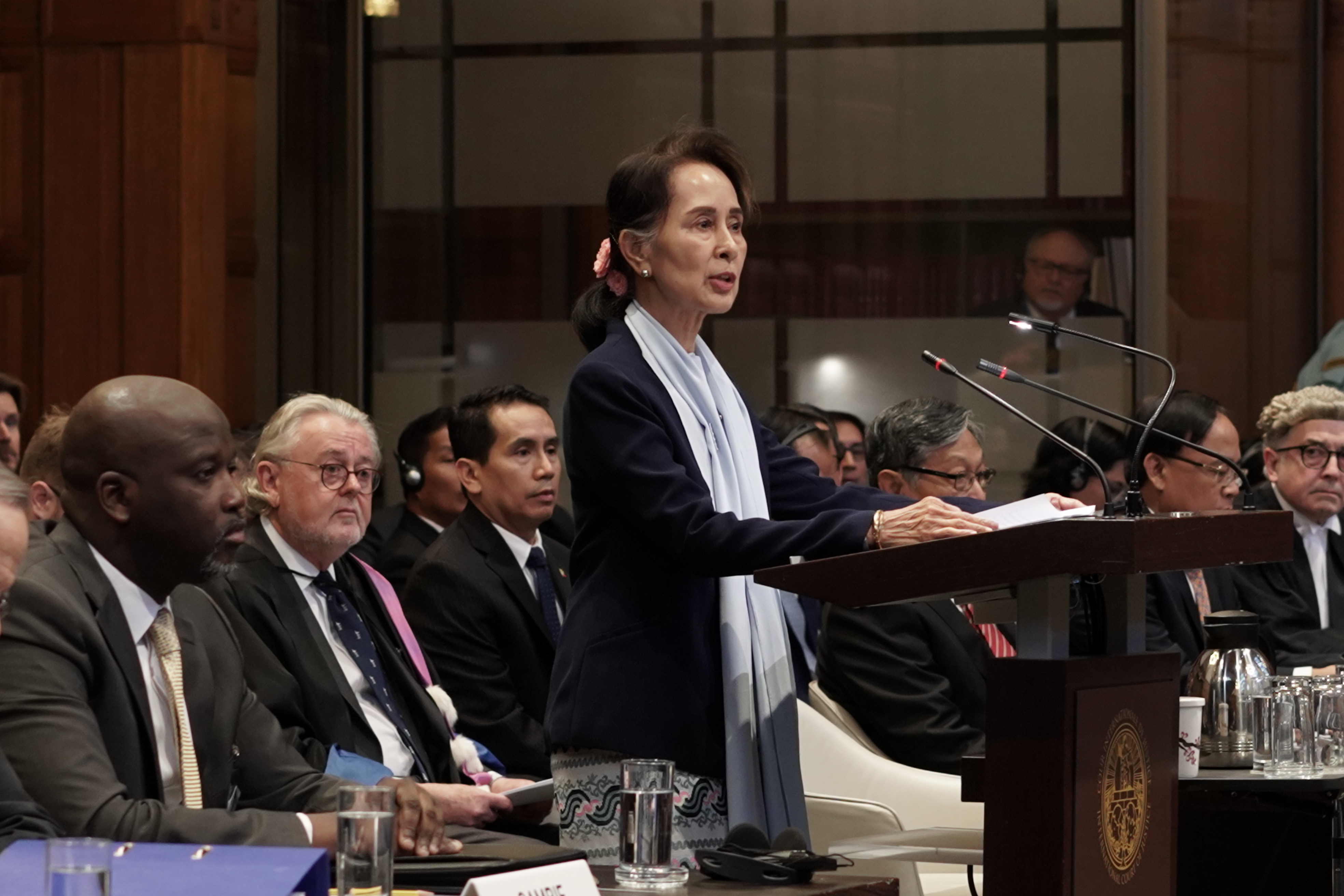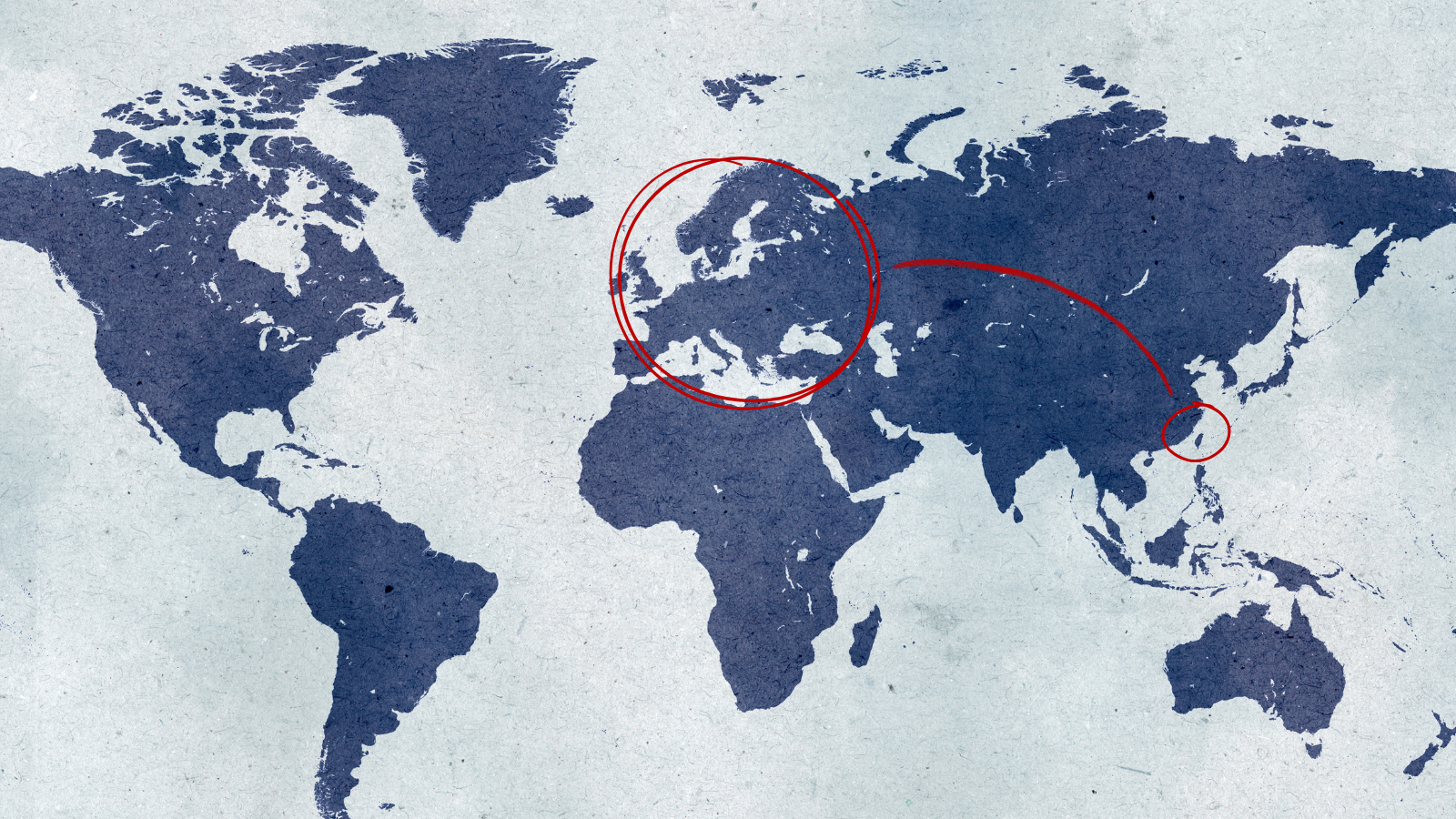Welcome to the 9th issue of the #CEEasia Briefing.
In this issue, we dissect the following topics:
- China reacts to Vystrčil’s visit to Taiwan: strong rhetoric and symbolic sanctions
- Slovakia’s Security Report 2019: harsh criticism of China
- EU-China Summit: newly-found confidence of the Europeans
- Japanese government reshuffle: what Suga means for the EU and CEE
- Future of travel between the EU and India
Do you need to know more about East Asia? Don’t hesitate to shoot us a message about custom analysis tailored to your needs.
China reacts to Vystrčil’s visit to Taiwan: strong rhetoric and symbolic sanctions
What’s going on? The Chinese authorities are outraged after the recent visit of Czech Senate Speaker Milos Vystrčil to Taiwan. Accompanied by the other 90 people including the mayor of Prague, Vystrčil has focused on promoting business links between China and the Czech Republic. As a response, China’s Minister of Foreign Affairs Wang Yi has threatened Vystrčil by saying he will pay a ”heavy price” for not respecting the One China principle. In fact, it has emerged recently that China will now likely ban enterprises and individuals who accompanied Vystrčil from entering China.
Going Deeper… The controversial visit is the latest step in a series of deterioration in the Sino-Czech relationship. Few months after their dramatic fallout following the decision of a new city government in Prague to cancel its sister city agreement with Beijing, the Czech authorities signed a partnership agreement with Taiwan to fight COVID-19 in April.
The visit to Taiwan was also partially a continuation of a scheduled visit by a former senate leader Jaroslav Kubera who passed away in January, prior to his scheduled trip to Taipei. Shortly before Kubera’s death, the Chinese embassy in Prague and the Office of the Czech President Zeman (a notable China proxy) was exerting heavy pressure on Kubera to reconsider the visit.
This means… As past cases of European countries challenging China on issues it considers its “core interests” indicate, the typical pattern of China’s response to a perceived affront by another country includes strong verbal condemnation, diplomatic cooling off, and at worst some symbolic economic sanctions, which however do not have much of an impact on the overall economic wellbeing of the country.
It will be interesting to see how the EU decides to respond to similar threats by China that appear to be increasing in their frequency. Yet the condemnation of Chinese threats by Germany, France, and Slovakia might be some indications of where things are heading . This is a significant step away from the traditional strategy of silence used by European states over the past few years when it came to matters concerning China. And as you can read in our story on the outcome of the EU-China Summit in September, the EU is not willing to meet China halfway on its conditions and calls on Beijing to take concrete action to demonstrate it is willing to uphold the values the current international order is based on.
Further reading:
The Diplomat: How Will China Respond to the Czech Senate President’s Visit to Taiwan?
iROzhlas: Čína trestá členy senátní delegace za Tchaj-wan. Zakáže jim vstup na své území
Focus Taiwan: Taiwan, Czech Republic forge partnership over COVID-19
Slovakia’s Security Report 2019: harsh criticism of China
What’s going on? The Slovak government has approved the 2019 Security Report, which contained the strongest language on China in any Slovak security document publicly communicated by the government up till today.
The report presents an evaluation of the security challenges Slovakia was faced with in the past year and offers a prediction of how these challenges will evolve in the near future.
Going Deeper… China was called out on carrying out influence operations in Slovakia which followed two goals: improving China’s image as a trustworthy trading partner and creating ties with key state institutions. Chinese intelligence activities focused mostly on defense and ICT industries. Chinese subjects were especially interested in penetrating into sectors that offer access to trade-sensitive information usable for the further economic development of China.

The strongly worded evaluation of Chinese activities follows the pattern of change in Slovak approach to China which emerged following the February 2020 general elections and was further catalyzed by the COVID-19 pandemic. The elections ushered in a new government, which’s foreign policy has a much stronger rooting in political values like democracy and human rights compared to predecessor governments led by Social Democrats. While the political change started in the human rights related issues, it is not slowly seeping into the security realm as well.
What’s next? While the changing political attitudes towards China represent a more realistic view of China compared to the past, it remains questionable whether it will last or is merely an aberration. The nature of the change will be tested in the coming months as Slovakia is preparing to adopt a new Security Strategy, a main security policy-planning document of the government. While some politicians have signalled that China will be a subject of discussion in the new document, which security challenges will be highlighted remains unclear just yet. The 2019 Security Report offers an insight into the thinking at the relevant security agencies in Slovakia.
As CEIAS analyst Matej Šimalčík recently wrote for Euractiv, in order to prepare well for the China-related challenges, the new Security Strategy needs to focus on the following four issues:
- Disinformation and propaganda
- Weaponization of trade and investment
- Strategic corruption
- Supply chain resilience
Besides these four issues, Slovakia still has a homework to do in the form of adopting a robust investment screening mechanism, adopting measures to mitigate the risks of academic cooperation with China, or preventing the abuse of subnational relations (municipal and regional relations, inter-party connections) to fragment Slovak approach to China.
Further reading:
Euractiv: How to tackle China in the new security strategy of Slovakia? (in Slovak)
Diplomat: Slovakia: A new challenger of China’s human rights record?
Government of Slovakia: 2019 Security Report (in Slovak)
EU-China Summit: newly-found confidence of the Europeans
What is going on? A summit between China and all EU member states in Leipzig was supposed to be a geopolitical climax of the German presidency of the EU. However, due to the COVID-19, a virtual meeting took place again as on 14 September a follow-up videoconference to the 22nd EU-China summit, that had taken place in June, brought together Xi Jinping, Angela Merkel and EU representatives – Ursula von der Leyen and Charles Michel.
Going deeper… The summit talks focused on a number of areas regarding the EU-China relation, including trade and investment, digital issues and cybersecurity, climate policy as well as human rights. But most importantly, the results of the summit showed a sign of tension between the EU and China and confirmed both parties are not ready to complete a long-planned investment agreement that has been under negotiations since January 2014. Moreover, the EU’s approach towards China also appeared to be much sharper and more vigilant, making it clear that China needs to understand the EU members’ different approach to certain issues cannot be ignored if any deal should go ahead.
This means… The EU displayed a new level of confidence and assertiveness towards China, speaking up for the European companies to have fair and equal access to the Chinese market and calling for a barrier lift, especially in China’s communications, IT, biotech and health care sectors. It is clear, Beijing’s reputation among the EU member states has suffered significantly in recent months, not only as a result of the COVID-19 pandemic and Beijing’s “mask diplomacy”, but also because of the brutal repression of the Uighurs minority in Xinjiang and the measures China took in Hong Kong which are slowly bringing the one country, two systems principle to an end. Clearly, seeing that there has been no progress on any of the essential fronts regarding the relations with China, the EU started speaking up and is visibly changing its approach.
Further reading:
EU Council: EU-China leaders’ meeting via video conference, 14 September 2020
Reuters: EU-China summit to mark soured relations with deal on whiskey
France24: EU presses China on market access, human rights during virtual summit
Deutsche Welle: EU-China summit: What really happened?
Japanese government reshuffle: what Suga means for the EU and CEE
What’s going on? On Friday, August 28th Japanese Prime Minister Abe Shinzo announced his resignation due to worsening health condition. It is the second time the longest serving PM in Japanese history stepped down. In 2007, he resigned due to ulcerative colitis, a chronic inflammatory bowel disease. This condition also caused his second resignation. According to Flash magazine, Abe vomited blood in early July. This information was subsequently denied by then Chief Cabinet Secretary, quoting “There is absolutely no problem (with his health).” However, Abe underwent medical examinations, without any information on results. Abe decided to step down, as the treatment is time-consuming, so he should not continue as a PM.
Going Deeper… Abe Shinzo brought an unprecedented era of stability, which in turn helped Japan to improve its position on the international stage. His most notorious policies include Abenomics and constitutional revision. He was a proponent of strengthening economic ties with major global actors, even though this initiative was partially unsuccessful due to US withdrawal from TPP. On the other hand, in terms of EU-Japan relations, major deals such as the EU-Japan Economic Partnership Agreement, Strategic Partnership Agreement and Partnership on Sustainable Connectivity and Quality Infrastructure were signed under Abe´s leadership. Despite his ambitious vision for Japan, considerable part of it is left undone. Due to highly divided public opinion on constitutional revision he managed its reinterpretation allowing Japan collective defence. Abe´s administrations also didn´t finish a deal with Russia regarding disputed Kuril Islands. Nor did they manage to resolve the abduction issue with North Korea.
Surprising announcement on Abe´s intention to resign started a competition among major candidates for the position of the Prime Minister and Liberal Democratic Party leader : Suga Yoshihide (then Chief Cabinet Secretary), Kishida Fumio (former Minister of Foreign Affairs and party policy chief) and Ishiba Shigeru (former Minister of Defence). Suga, a skilled bureaucrat and crisis manager, who helped Abe to abide series of scandals, won by ¾ majority of party delegates. He will most likely continue in Abe’s policies, therefore any major revolutionary change is not expected. With favourable public support he will probably call a snap election. However, with the pandemic situation and its impact on the economy as well as recent natural disasters in Japan, he will have to act quickly, as there are many pretenders for the post of PM despite the severe situation.
This means… From the perspective of the EU and CEEs, Japan under Abe Shinzo went from a distant, yet somehow friendly nation into a key global partner. Japan has a dominant position as foreign investor in Central Europe, therefore deepening the cooperation between Japan and Europe is welcomed. Intensified relations between Japan and EU were also materialized in the V4+Japan 2019 meeting in Bratislava. The summit was held in the spirit of EPA and SPA between EU and Japan, with emphasis on cooperation in Western Balkans and joint R&D projects. Stable Japan with a skilled leader, who is determined to continue in Abe’s policies is good news for the EU and CEEs.
Further reading:
Japanese Government Internet TV: Press Conference by the Prime Minister
The Washington Post: Japan’s prime minister is resigning. This is how Abe transformed Japanese politics
Nikkei Asian Review: Who is Yoshihide Suga?
Future of travel between the EU and India
What is going on? Due to financial losses recurred during the COVID-19 pandemic, Air India decided to close down five of its European stations, including Madrid, Milan, Vienna, Copenhagen, and Stockholm, cutting its destinations in Europe by nearly 50%.
Going deeper… India recently started to reopen its airports to international flights, however, the state-run carrier decided to scrap its flights to the least-demanded European destinations as the demand was already very low and according to projections, global passenger numbers for 2020 might decline by more than half compared to 2019. Instead, India created travel bubbles with France, Germany, the UK, the United States, Canada, Kuwait, and the UAE, that is why Lufthansa, British Airways, Air France, and other carriers on the other side of the travel bubbles are resuming their routes into India.
This means… While the travel bubbles represent the first step back to regular international flights, there is no open-door policy and a high degree of control over all the flights as well as exceptional safety measures are still in place.
Further reading:
Simple Flying: Air India To Close Five European Bases








